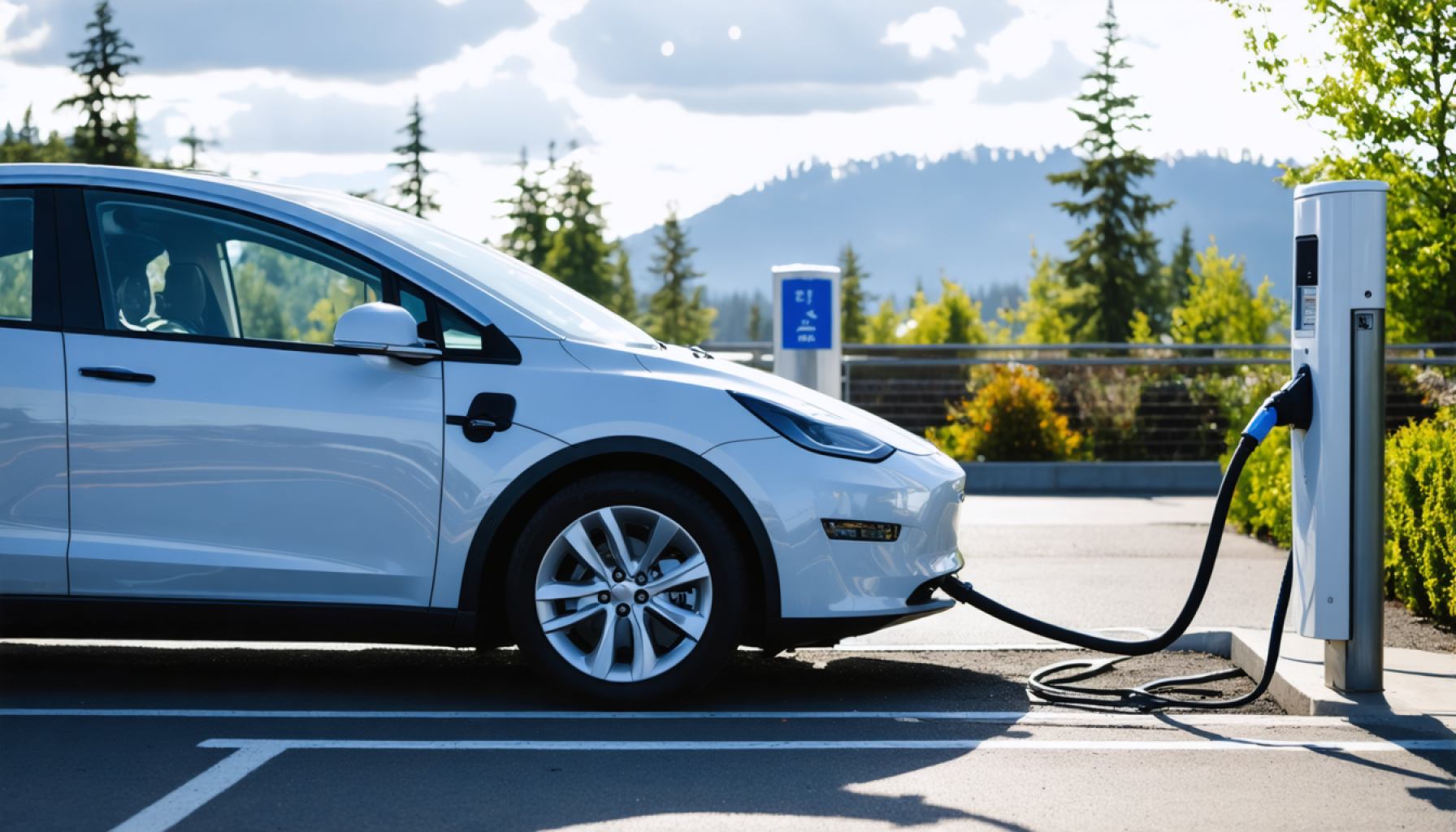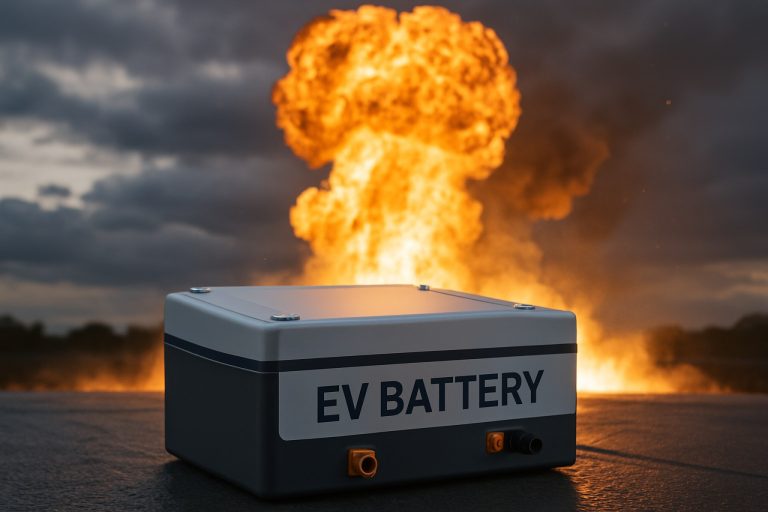
- BC Hydro is significantly expanding its public fast-charging network in British Columbia, increasing from 173 to 591 charging ports within a year.
- The province is witnessing a surge in electric vehicle (EV) adoption, with current numbers around 195,000 expected to rise to 700,000-900,000 by the mid-2030s.
- The power output of the network has increased from 10 to 41 megawatts, with 85% of chargers being fast chargers.
- The “Electric Highway” project aims to provide a fast-charging station every 150 kilometers along major routes, supporting BC Hydro’s leadership in North American EV innovation.
- New 350-kilowatt chargers are being introduced, giving 100 km of range in just five minutes, with plans for even faster 400 kW chargers debuting later this year.
- BC Hydro aims to have 800 charging ports by spring 2026, advancing British Columbia toward a sustainable electric future.
As the sun dips below the jagged peaks of British Columbia, a new era ignites, fueled by an electrifying advancement in transportation. With an audacious spirit and a commitment to a sustainable future, BC Hydro recently announced a staggering expansion of its public fast-charging network, tripling its size within just a single year. This monumental endeavor breathes fresh life into long highways and bustling urban centers, scattering 591 charging ports across the picturesque province, a substantial leap from the mere 173 ports available a year ago.
This dramatic transformation reflects the province’s growing embrace of electric vehicles (EVs). Currently, approximately 195,000 electric vehicles whisper along BC’s roads, silently hinting at a profound shift in consumer attitudes and technological progress. But this is merely the beginning. Forecasts predict a rapid ascent, with EV numbers expected to soar to between 700,000 and 900,000 by the mid-2030s.
Under the vigilant guidance of BC Hydro’s President and CEO, the province is not just adopting technology but leading the charge in North American EV adaptation. With strategic investments, BC Hydro is both steward and pioneer, crafting a cleaner, more efficient tomorrow. In recent months, sites like Vancouver’s Kerrisdale hub, Maple Ridge’s Haney Place Mall, and the Colwood Park & Ride on Vancouver Island have seen significant expansions, boosting them with a collective 55 new charging ports.
Notably, the network’s power output has surged from 10 to 41 megawatts. An impressive 85% of these ports are fast chargers, equipped to accommodate a myriad of EV models with a variety of connectors. This power surge is pivotal as it underpins the province’s ambitious “Electric Highway” project. This vision promises EV travelers a reliable fast-charging oasis every 150 kilometers along BC’s most frequented routes. BC Hydro, holding the reins to 70% of these sites, fuels this dream into reality.
Innovation motors ahead fiercely, as BC Hydro rolls out next-generation 350-kilowatt chargers capable of bestowing 100 kilometers of range with a swift five-minute connection. And in a thrilling preview of things to come, even faster chargers, clocking in at 400 kW, are set to debut later this year, slashing charging time to a mere breath: three minutes.
On this journey from sea to sky, BC Hydro is steadfast, with ambitions to unfurl an expansive network of 800 ports by spring 2026. This ambitious roadmap charts BC’s collision course with an electric future, where technology and sustainability dovetail to redefine the rhythm of life on the west coast.
Here, charging stations are not just metal and circuits; they are pathways to a cleaner future, milestones in a broader movement towards sustainability. As British Columbians charge up and drive on, they do so with the conviction that they are part of something larger—a legacy empowered by clean energy, set to illuminate generations to come.
Game-Changer in Clean Transportation: BC Hydro’s Ambitious Electric Vehicle Charging Expansion
The Expansive Future of EV Charging in British Columbia
British Columbia is making waves in the world of electric vehicle (EV) infrastructure, led by BC Hydro’s ambitious expansion of its fast-charging network. This leap not only signifies a shift towards sustainable transportation but also positions the province as a leader in EV adaptation in North America. Here’s an in-depth exploration of what this expansion means for BC and the broader implications for the electric vehicle market.
Understanding the Expansion and Its Impacts
1. Increased Infrastructure: BC Hydro plans to expand its charging network to 800 ports by spring 2026. This remarkable growth from 173 to 591 ports in just one year illustrates the province’s commitment to creating a robust infrastructure that supports the increasing number of electric vehicles on the road.
2. Rising Electric Vehicle Adoption: With approximately 195,000 EVs currently driving through BC, projections suggest this number will increase to 700,000–900,000 by the mid-2030s. This growth is driven by both consumer demand and technological advancements.
3. Powerful Chargers for Fast Turnarounds: The introduction of next-generation 350-kilowatt chargers is a game-changer, allowing drivers to add 100 kilometers of range in just five minutes. Future innovations promise 400 kW chargers, reducing charging time to three minutes.
4. Sustainability and Environmental Impact: The shift to EVs significantly reduces greenhouse gas emissions compared to internal combustion engine vehicles. This infrastructure improvement is a pivotal step in meeting BC’s sustainability goals and reducing carbon footprints.
Practical Tips: How to Maximize Your EV Experience in BC
– Utilize Fast Chargers: Fast chargers are now more accessible, with 85% of the network comprised of them. Make the most of your EV’s range by planning routes that utilize these fast-charging stations.
– Stay Informed on New Locations: As new stations are frequently added, keep an eye on updates from BC Hydro to find the most convenient charging options.
– Charge Smart: For long trips on the “Electric Highway,” use apps to check the status of charging stations in advance and plan charging stops for optimal efficiency.
Market Forecasts & Industry Trends
– Global EV Growth: The global electric vehicle market is expected to grow at a compound annual growth rate of 21.7% from 2021 to 2030. British Columbia’s proactive investments are in line with these global trends, anticipating increased demand for EV infrastructure.
– Battery Technology Advancements: As battery technology continues to evolve, we can expect even shorter charging times and longer vehicle ranges, making EVs more convenient and appealing to a broader audience.
Pros & Cons Overview
Pros:
– Environmentally friendly with lower emissions.
– Reduced fuel costs and maintenance requirements.
– BC’s extensive and growing charging network ensures reliability for EV users.
Cons:
– Initial higher purchase costs compared to gasoline vehicles.
– Limited range and longer charging times compared to a quick refuel for gas vehicles (though this is improving).
Recommendations for BC Residents Considering an EV
– Evaluate Your Driving Needs: Consider your typical driving distance and local charging infrastructure when selecting an EV model.
– Incentives and Subsidies: Research provincial and federal incentives to reduce the purchase cost of an electric vehicle.
– Stay Updated: Follow BC Hydro and other local authorities for updates on charging station expansions and EV-related policies.
BC Hydro’s commitment to a sustainable future through this unprecedented expansion aligns with evolving transportation needs and consumer preferences. For further information on electric vehicles, you can visit the BC Hydro website: BC Hydro.



